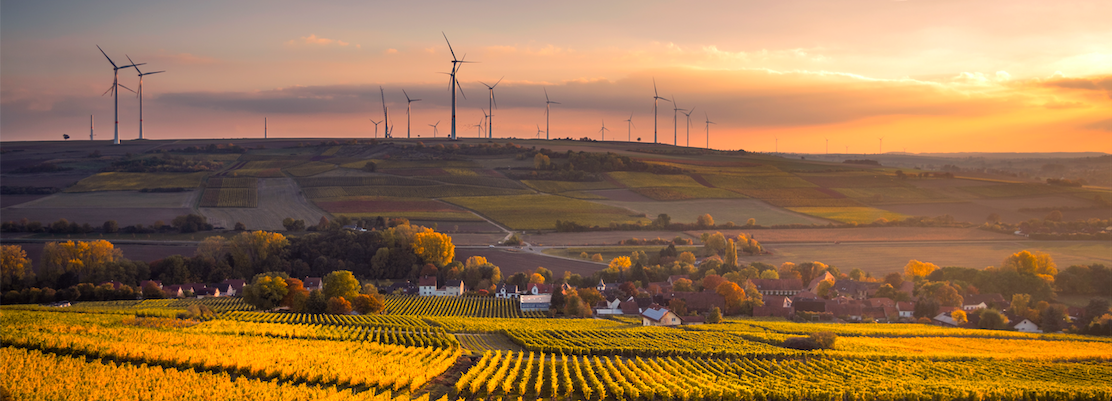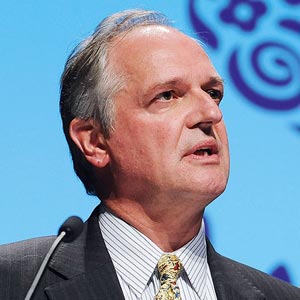
— Paul Polman, Co-founder and Chair of IMAGINE
It cannot have gone unnoticed that young people have sparked a global environmental movement that is ringing the alarm bell like never before. Driven by a deep commitment to bold climate action, they are demanding enhanced stewardship of our natural capital and biodiversity.
The figure-head of this revolution, Greta Thunberg, to whom we all owe so much, recently summed up their growing impatience and frustration with today’s leaders, saying “once again they sweep their mess under the rug for us – young people, their children – to clean up for them.”
In my view, this activism is both important and necessary for driving positive change. Not only in convincing governments to act with far greater urgency. But in persuading businesses to step up too, as they cannot be bystanders as our planetary emergency gathers pace, and instead must earn their license to operate.
I have long argued that companies need to be givers, not takers, in society. This isn’t about morality or altruism – although many, quite rightly, think it should be – it’s about enlightened self-interest. It’s simply not possible for companies to be successful in a world of runaway climate change, degradation of our natural ecosystems and rising inequality.
This is a crucial ‘decade of action’ that requires business to step-up to help decarbonise the global economy and deliver the Sustainable Development Goals. It’s also a ‘super year for nature’ in which we need to integrate stewardship of the earth’s life support services – oceans, biodiversity and climate – with a new way of doing business. Valued at $125 trillion a year our natural capital and biodiversity are vital components of the wealth of nations. And it’s estimated that so-called ‘nature-based solutions’ can provide up to 37% of the cost effective GHG emission reductions needed by 2030, making them indispensable to securing the climate transition the world needs. Indeed, without action to advance this agenda we will not limit the average global temperature rise to 1.5 °C.
Fortunately, the evidence base for determined action is compelling. A recent report by the Food and Land Use Coalitionfound that the ways we produce and consume food and use land costs $12 trillion a year in damage to our environment, health and development. And if we do nothing, this will increase to more than $16 trillion each year by 2050.
There is also new analysis from the World Economic Forum that raises the risk of stranded assets within the forest and land sectors. While the threat of stranded assets is well known within the fossil fuel industry, the concept that companies could hold nature-related assets is only just beginning to be understood. All told, this could amount to tens of billions of dollars of associated risks for companies.
On the other hand, the FOLU report shows it is possible to bring climate change under control, protect nature, ensure more healthy diets for all, improve food security, strengthen rural economies and unlock $4.5 trillion in new business opportunities each year by 2030 – while at the same time avoiding $5.7 trillion a year in damage to people and our planet.
This is exactly the kind of sustainable, inclusive and equitable model of growth that young people are demanding. With 84% of millennials now considering it their duty to make the world a better place. After all, what should we expect to happen when more and more young people trade their placards for ballot papers, shopping carts and job applications? It’s clear that the choices they will make will have huge repercussions for how companies are managed. And, in my view, underscores that multi-stakeholder business models and purpose-driven brands are more relevant than ever.
This yearning for truly responsible business was vividly captured by Nature4Climate in its recent video about tomorrow’s consumers, which shows children expressing their strong dislike for products that are harmful to the planet. Their message is clear. As they grow into adulthood and their buying power increases, they will only reward those companies that use their value chain and brands to protect the environment. As one of the children bluntly says, “you’ve been warned.” Those companies that don’t listen will, I’m afraid, pay the price, as the next generation of consumers vote with their feet.
So, what can businesses do in response? Well, quite a lot. The first step is to align their strategies with the Sustainable Development Goals – the world’s greatest business plan. Second, they should adopt science-based targets to reduce their carbon emissions in line with the Paris Agreement. And third, they must embrace ‘nature-based solutions’ to help preserve our natural capital and biodiversity. Taken together – and provided governments step-up as well with supportive policies – we can deliver truly meaningful change.
The interests of young people and business have never been more strongly aligned. Young people are on the move. And companies that don’t keep up will be left in their wake.
[END]
 Paul is Co-founder and Chair of IMAGINE, a benefit corporation and foundation accelerating business leadership to achieve the Global Goals. He also serves as Chair of the International Chamber of Commerce, The B Team, Oxford Said Business School and is Vice-Chair of the U.N. Global Compact.
Paul is Co-founder and Chair of IMAGINE, a benefit corporation and foundation accelerating business leadership to achieve the Global Goals. He also serves as Chair of the International Chamber of Commerce, The B Team, Oxford Said Business School and is Vice-Chair of the U.N. Global Compact.
He was CEO of Unilever for 10 years where he demonstrated that a long-term, multi-stakeholder model goes hand-in-hand with good financial performance. Paul was appointed to the U.N. Secretary General’s High-level Panel that developed the Sustainable Development Goals and has played a leading role since in highlighting the business case for the 2030 development agenda.